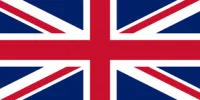

This guidance is for manufactured goods on the EU and UK market.
Goods are ‘placed on the market’ when they are made available on the market for the first time. If you have already placed a good on the market before the UK leaves the EU then it can continue circulating after Brexit. Check the specific EU goods regulations and directives covered by this section. There’s different guidance if you’re placing construction products or medical devices on the UK market.
Essential requirements:
When we leave the EU the essential requirements (the legal requirements that must be met before a good can be placed on the market) applying to goods placed on the market in the UK will not change.
Conformity assessment:
Goods must undergo ‘conformity assessment’ to make sure that they comply with the essential requirements. External notified bodies assess whether some goods, including lifts and pyrotechnics, conform whereas the manufacturer can ‘self-declare’ others, such as toys.
Using the CE marking in the UK
If you manufacture, import or distribute goods that meet the relevant EU regulatory requirements and bear the CE marking (or other applicable EU conformity marking, such as the ‘wheel mark’) you can still place them on the UK market after the UK leaves the EU. This applies whether the CE marking is used after the manufacturer has self-declared it, or after an EU-recognized conformity assessment body has assessed its conformity. This arrangement will be for a limited time. The government will give businesses notice before this period ends.
New UK arrangements
A new UK framework for conformity assessment will come into effect after the UK leaves the EU. The underlying rules and regulations setting out the requirements for conformity assessment for each product will stay the same.
The UKCA mark, a new UK conformity marking will indicate that a product complies with UK regulations and can be placed on the UK market.
UK notified bodies will become UK approved bodies. This represents their new status in law after we leave the EU, but their role in conformity assessment will not change. EU notified bodies are listed on the NANDO database. After we leave the EU you will be able to find details of UK-approved bodies on a similar UK government database which the government will publicize ahead of EU exit.
If your goods are conformity assessed by the UK approved body, then where this is required by legislation, you must use the UKCA marking. This means you can place them in the UK market after the UK leaves the EU, but not the EU market. Read the guidance on using the UKCA marking.
Together, these measures mean that for a limited time, goods using either the CE or UKCA markings can be placed on the UK market. Self-declaration will be allowed as it is today.
Standards
The role of standards in the regulatory framework for manufactured goods will not change when we leave the EU. The current EU ‘harmonized standards’ will be carried across as UK ‘designated standards’ to maintain a single standards model between the UK and the EU.
The roles of economic operators-
Some economic operators will get new legal responsibilities after Brexit.
Distributors and importers-
If you bring manufactured goods regulated under the new approach into the UK from the EU or EEA and want to place them on the market after the UK leaves the EU your status will change from a ‘distributor’ to an ‘importer’.
You’ll need to :
label the goods with your company’s details, including your company’s name, registered trade name or trademark and a contact address (There will be an 18-month transitional period after the UK leaves the EU allowing importers importing goods from the EU or EEA to provide their details on the accompanying documentation rather than on the product itself).
If you are a manufacturer, your legal obligations will remain largely unchanged after the UK leaves the EU.
Authorized representatives
If you are placing goods on the market after the UK leaves the EU and want to appoint a new authorized representative they will need to be based in the UK.
If you are placing cosmetic products in the UK market, you will need to have a responsible person based in the UK after the UK leaves the EU.
If you are placing goods on the market before the UK leaves the EU and have appointed an authorized representative based in the UK, EU, EEA, (or Switzerland and Turkey, where the UK’s continuity measures allow for this) you can continue using them and they will continue to be recognized in the UK.
If you are placing goods on the market after the UK leaves the EU and already have an authorized representative based in the UK, EU, EEA, Switzerland or Turkey, then you can continue using them and they will continue to be recognized in the UK.
Old approach goods
Old approach goods are subject to detailed regulatory requirements and approvals by public bodies.
The relevant regulators have produced detailed guidance on goods subject to the old approach. You should check the guidance on:
-Chemicals
-Medicines
-Vehicles
-Aerospace
Non-harmonized goods
In the EU, non-harmonized goods are subject to the ‘mutual recognition principle’. This is the principle of EU law under which EU countries must allow goods that are legally sold in another EU country to be sold in their own territory. After the UK leaves the EU the mutual recognition principle will not apply to non-harmonized goods placed on the UK market.
If you import non-harmonized goods into the UK after the UK leaves the EU you will need to make sure they meet UK national requirements.
If you are a non-UK business exporting non-harmonized goods to the UK after the UK leaves the EU you will need to make sure that the goods meet UK national requirements, regardless of whether they were previously lawfully marketed in another EU country or in the UK.
Importing goods from non-EU countries:
If you are importing goods that need third-party conformity assessment from a non-EU country. You can meet your requirements for assessment in 3 ways:
-You can have your goods assessed by a UK approved body, allowing them to be placed on the UK market.
-You can have your goods assessed by an EU or EEA notified body, so they can be placed on the EU internal market and the UK market for a limited time.
-You can have your goods assessed against EU requirements by using designated conformity assessment bodies for a limited time. The bodies need to be based in countries that have previously concluded mutual recognition arrangements in relation to conformity assessment with the EU.
The countries covered are:
Australia
New Zealand
Canada
USA
Japan
Switzerland
Turkey
South Korea
Israel
360Compliance provides Testing & Certification for type approval services and global market access in 195 countries. With proven expertise in worldwide regulations, 360Compliance can help your company shorten time to any market, minimize risks and manage the regulatory process from A-Z.
Contact us at contact@dev.lm-studio.co.il/360
You may also be interested





